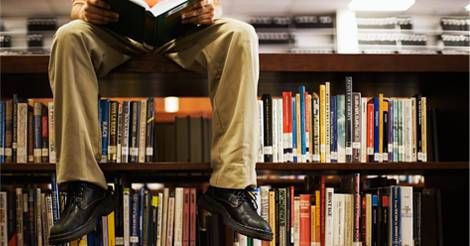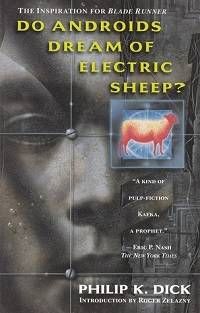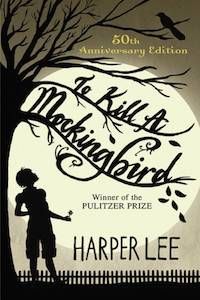
3 Books for Rediscovering Your Humanity
This is a guest post from Ann-Marie Cahill. Ann-Marie will read anything and everything. From novels to trading cards to the inside of CD covers (they’re still a thing, right?). A good day is when her kids bring notes home from school. A bad day is when she has to pry a book from her kids’ hands, just to break their concentration long enough to eat lunch. And then realizes where they get it from. The only thing Ann-Marie loves more than reading is traveling. And reading about traveling. And traveling to places she read about. She has expensive hobbies.
There’s a lot going on in the world and it’s totally normal to seek solace in, or escape to, a book. Politics, human rights, natural disasters. How do you find a balance between entertainment, escapism, and just enough thought-provoking material to quell the guilt nagging you about ignoring the problems of the world? Perhaps something to reconnect you with Humanity and your own small-h-humanity.
Well, I’m sorry to tell you, but this quest can’t (and to be honest, shouldn’t) be fulfilled by a single book. It is more like…a journey; a progression through thought. And like any good journey, you need a beginning, a middle, and an end. Three stages to define, guide, and reassure your humanity through one key feature: empathy.
The Beginning
 Do Androids Dream of Electric Sheep? by Philip K. Dick
Do Androids Dream of Electric Sheep? by Philip K. Dick
If we, as a collective society, were to take Philip K. Dick’s infamous Voight-Kampff test…Yeah, I don’t think we would pass anytime soon. The Voight-Kampff Test originates from the science-fiction novel Do Androids Dream of Electric Sheep?, first published in 1968 and subsequently immortalised on the silver screen in the movie Blade Runner and its upcoming sequel Blade Runner 2049.
For those new to Phillip K. Dick, he was a sci-fi writer who was absolutely enthralled with our humanity and our personal identity. Do Androids Dream of Electric Sheep? is held up as his best story for exploring the concept of what makes us human, compared to androids designed to look and act like humans. The main story follows a bounty hunter, Deckard, contracted to kill six rogue androids, while the sub-plot explores how to differentiate between human and android—primarily with the aid of the Voight-Kampff Test.
This test was specifically aimed at provoking and identifying your humanity: what separates humans from all other life, biological or artificial. What makes us human? Back in 1968, the test seemed pretty straight-forward: the Administrator was looking for natural displays of empathy. But society has changed. Technology has changed. Within the story itself, there are humans trying to develop androids which could pass the test; training/programming them with the appropriate response to any emotional situation. As Deckard starts to question the veracity of the test, we as the readers start to question our own response. Have we been trained to provide the “socially acceptable” reaction? Would we still know how to respond in any other way?
Empathy has often been defined as our ability to understand and respect another. It is essentially looking past our differences to find the commonality bringing us together in our Humanity. The ability to understand and share the feelings of another. On face value, this seems like a great test for proving one’s humanity. Surely robots can’t have feelings themselves, let alone share the feelings of another.
Except…recent AI developments have shown the ability to read emotional cues and express a socially acceptable response. AI can even write books with depth and emotion, well enough to nearly win a prize. At the same time, we are flooded with examples of humans who are more interested in pointing out and exploiting our differences than finding the common core to unite us. If we were to apply the Voight-Kampff test today, I think we would find our AI Overlords have a lot more humanity than we hold ourselves.
The Middle
The Right Mistake by Walter Mosley
If you do pass the Voight-Kampff Test, what will you do with your bourgeoning humanity? Take some guidance from Walter Mosley and start your own meeting group. Straight from the pages of The Right Mistake, Mosley gives us the perfect example of how to ‘talk out’ the tough and taboo subjects and no longer hide them away in the shadows.
Where Dick is the king of science fiction, Mosley brings us closer to home with a gritty and honest crime novel, centred on the philosophical musings of a motley crew brought together by the main character Socrates, an ex-con with idealistic plans for a community centre. The Right Mistake gives us the opportunity to play out those deep and meaningful conversations we are often too afraid to speak aloud. In fact, Mosley gives us a guidebook to apply our humanity test and build on the results.
Every Thursday this mix of people comes to the Thinkers’ Meeting, held in a big tin-covered house, the ‘Big Nickel’. What starts as commentary on life in the neighbourhood rapidly evolves into a deeper discussion about racial and social differences. Our protagonists are a diverse mix, comprised of several races, religions, and economic backgrounds. You’ll want to take notes on each meaningful relationship as they form, building empathy as they do, inspired by their need to look past their differences and find what brings us together: humanity.
The characters come to realise they might change themselves in ways which would make the world a better place for all of them. Mosley’s writing brings such vibrant characters to the page; you want to believe the growth seen in the Big Nickel could really happen. He all but invites you to start the discussion and make a difference. If the Voight-Kampff test establishes your humanity, the Big Nickel will encourage its growth.
The End
 To Kill A Mockingbird by Harper Lee
To Kill A Mockingbird by Harper Lee
The hardest part is being true to this humanity, to use our humanity for the collective good. You’re going to need more inspiration to achieve this goal. Something more akin to an old friend; a classic novel with familiar characters to hold your hand through life’s lessons.
No matter the technology or the culture, or even the communities changing around us, a classic is a classic because it speaks to our humanity and connects us to those around us. To Kill a Mockingbird connects us in this way. Whether it is your first read or your fiftieth, the joy of Lee’s storytelling is how it binds us even though the book explicitly deals with exclusion and hate and fearmongering.
It’s not an easy task to undertake, creating a social commentary with a clear character portrayal of courage and action in the most troublesome of times. Although told through the eyes of Scout, it is her father Atticus Finch who is portrayed as the hero. Finch, the lawyer who defends an innocent black man in a time when it was not popular to do so. Finch, the father who protects his children but does not shield them from the virtuous lessons of his case. Finch, the one man in the community who shows empathy and reminds everyone else why it is so important.
However, Atticus Finch is not who you should identify with on this journey. Don’t get me wrong: Finch is easily seen by many readers as the hero of the book. Finch is the shining example of all we can be and should be; courageous, intelligent, persuasive, righteous. But he is not who you are right now. He is not who we are right now, as a collective society stumbling along the path to rediscover our humanity.
Instead, you should read To Kill a Mockingbird with your heart firmly set on Scout, our young champion. It is Scout who will hold your hand and give you the courage to do something with your humanity. Scout is the character who asks the questions, expecting the answers to be more than simply “it’s the right thing to do.” She wants to know the motivation behind our deeds. In all honesty, she would pass the Voight-Kampff test with true empathy, not a socially acceptable trained response. Scout is the one who will challenge her peers and ask them, “Why do you feel that way?”
Therein lies the secret to our humanity, hidden within the quiet pages of a thoughtful book. It is deep within our personal values, in the quiet space where intrinsic motivation speaks loudest and personal discovery is found in the reflective moments between pages. If we want to rediscover our humanity, we need to spend some time with our own emotions and be honest with ourselves.
It’s totally acceptable to want to escape the real world and bury yourself in a good book. But you will have to come back to reality at some stage. The journey will end and you will find yourself a little older and maybe a little wiser. If you’re lucky, you may have picked a book which gives you a sense of hope, redefines your humanity, and shows you how to use it.
And if you’re really lucky, you’ll have three.



 Do Androids Dream of Electric Sheep? by Philip K. Dick
Do Androids Dream of Electric Sheep? by Philip K. Dick To Kill A Mockingbird by Harper Lee
To Kill A Mockingbird by Harper Lee













